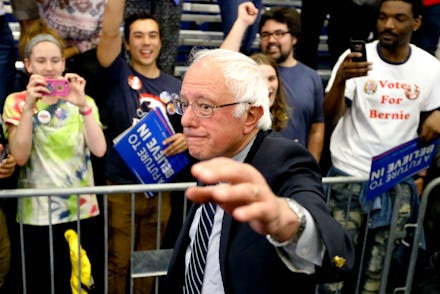Youth unemployment is epidemic in America. It’s time to give our young people a chance to succeed.

There is a tragic cycle in America today — one of poverty, unemployment, inadequate education and lack of job skills for future generations. It is long past time that we ended it.
Youth unemployment is one of the great crises facing our country, impacting millions of young people and their families, but it is one we rarely discuss in Washington. Over 5.3 million young people throughout our country — in inner cities and in rural areas — have either dropped out of high school or could not find work after graduation. Without a high school diploma, and the basic reading and communications skills that come with it, young people are much less likely to make it in today’s highly competitive and technologically changing job market.
The Economic Policy Institute analyzed the real unemployment rate — people who have given up looking for a job, or are working part-time, but in need of full-time employment — for recent high school graduates between the ages of 17 and 20 and found extraordinarily high unemployment rates. Over 28% of young whites, nearly 30% of young Latinos and more than 42% of young African-Americans are unemployed. These outrageously high rates of youth unemployment are not only unacceptable: They are having a tragic impact on our society.
Not being part of the economy early on in adulthood can have major consequences for a person’s entire life. When people leave school and look for a jobs, but there’s nothing there month after month — no job, no income and only constant rejection and depression with nothing to look forward to — millions of young people in every corner of our country become outcasts, living in worlds outside of the productive economy.
And what are the chances of a young person finding a job after years of unemployment? I’ll tell you: slim to none. How do you “move up the ladder” if the ladder was never there?
Unfortunately, the problems don’t end there. Most of today’s young people will eventually become mothers and fathers and will have children for whom they’ll need to provide. Without steady, and good paying jobs, they won’t have the tools to raise their children in safe and nurturing environments. The joblessness and hopelessness of today will be passed on to the next generation, and to the one after that.
That is why I introduced legislation with Congressman John Conyers (D-Mich.) to provide $5.5 billion in immediate funding to states and localities, to employ 1 million young Americans ages 16 and 24 and provide job training to hundreds of thousands of others the same age.
Under our bill, the U.S. Department of Labor would provide $4 billion in grants to states and local governments to provide summer jobs and year-round employment opportunities for economically disadvantaged youth, with direct links to academic and occupational learning.
In addition, this bill would provide another $1.5 billion in competitive grants to local areas to provide low-income youth and disadvantaged young adults with work-based training.
The time is long overdue for us to start investing in our young people and help them get the jobs and education they need to be part of our economy and our society.
But can legislation like this work? I recently had the opportunity to visit the Sasha Bruce Youthwork in Washington, D.C., which provides access to housing, education, job training and life skills for struggling young people. I was able to listen to the young men and women there who, with improved education and job skills, are now holding down jobs at good wages. I heard the pride in their voices as they talked about how they now earn regular paychecks, have decent housing and are improving their parenting skills. You don’t have to guess whether or not programs like that can succeed; they already do.
And the alternative is to allow the status quo to continue — to ignore the needs of these young people and others like them. When our young people cannot find jobs, housing or income within mainstream society, it is no secret as to what happens: They enter the underground economy, which can include drugs, crime, violence, jail and death.
Today, the United States has more people in federal prisons and state and local jails than any other country on earth — some 2.3 million. The vast majority of these inmates are poor, with insufficient education or jobs skills for the modern economy. They are disproportionately people of color. And many of these inmates have spouses, children and family members who are severely impacted by their being in jail. With mass incarceration, not only are we creating incredible human suffering and causing the extraordinary waste of human potential, but we are looking at a massive expenditure of public funds.
Today, we spend some $80 billion a year to lock up our fellow Americans instead of investing in our young people, and in jobs and education for them. The legislation that Congressman Conyers and I introduced is a start. It will ease people’s suffering, improve our economy and, ultimately, save taxpayers money.
Let’s get going.
Bernie Sanders is an independent senator from Vermont.